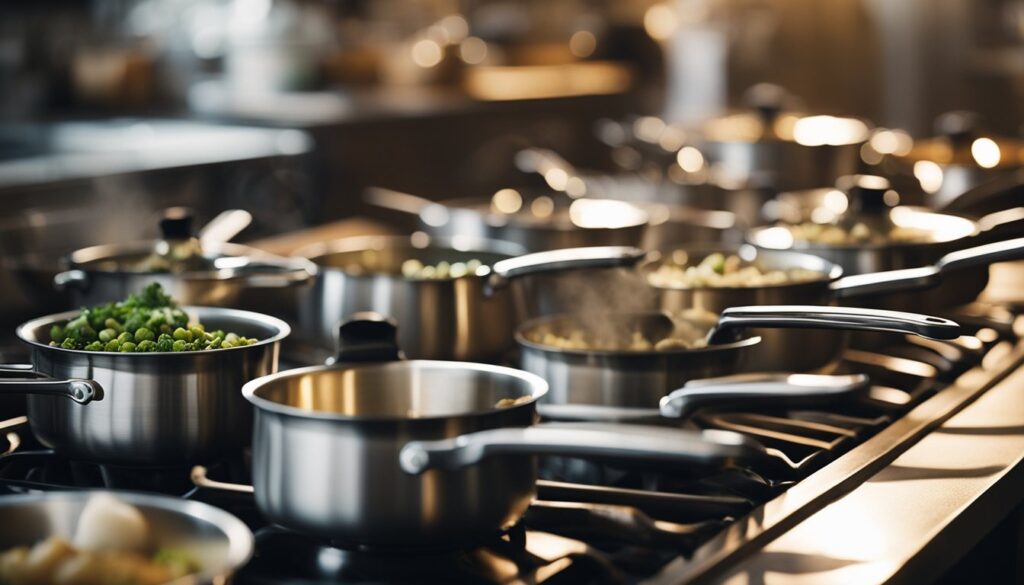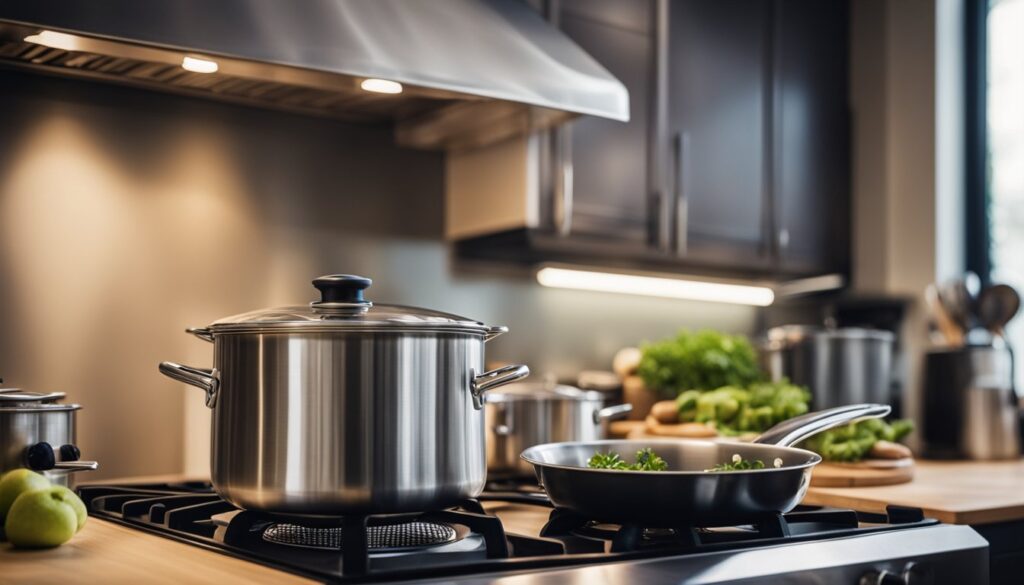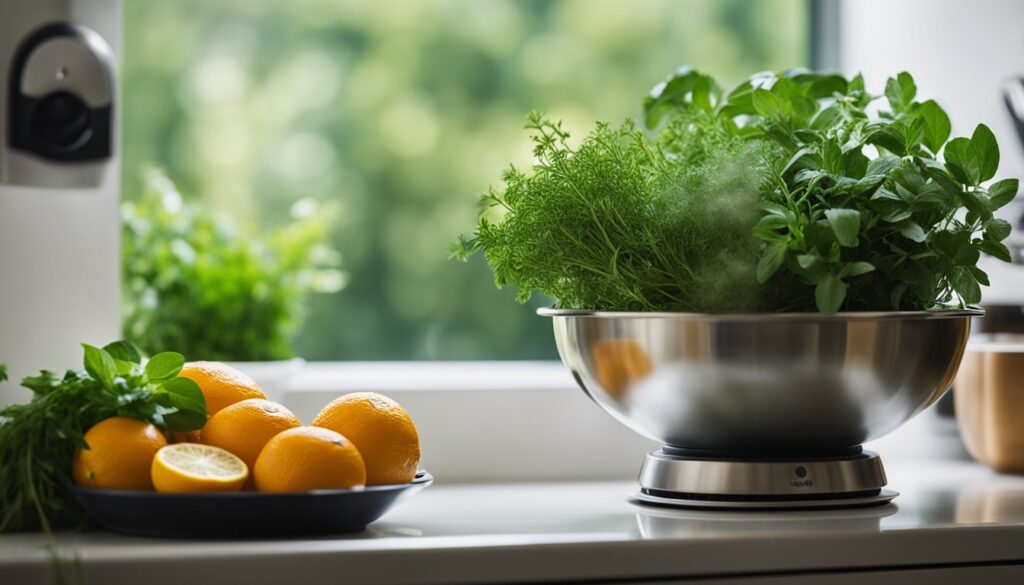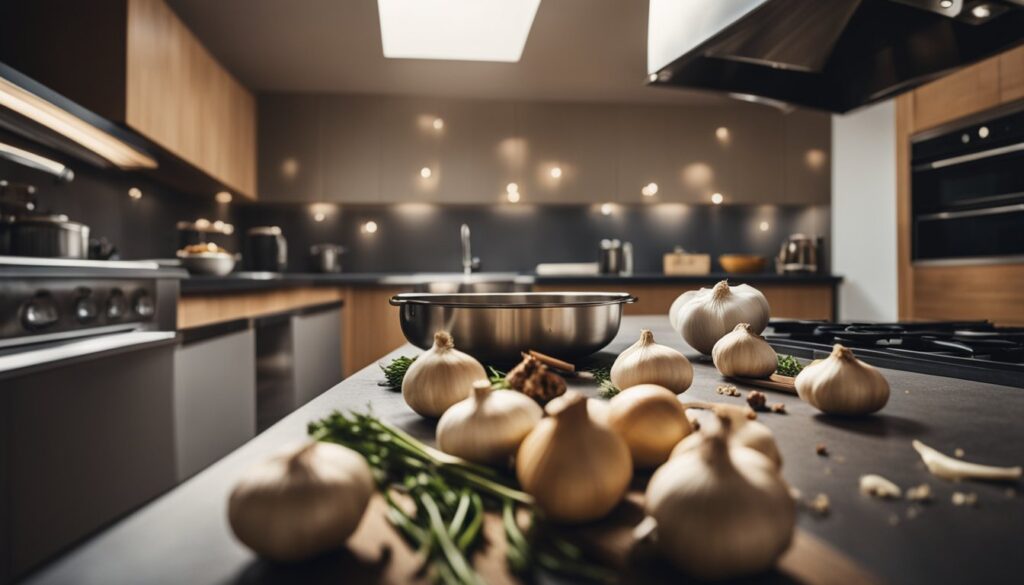Cooking can enrich a home with a tapestry of scents, but not all are welcome to linger. From the rich aroma of sautéed onions to the pungent sizzle of seared fish, these smells can become entrenched within the nooks of our kitchens. Beyond the immediate sensory experience, residual cooking odors that stay behind have the potential to be less than appetizing, prompting a quest for effective remedies to maintain a fresh household atmosphere.

The challenge of keeping a culinary space odor-free is one commonly faced by both novice and seasoned home cooks. Yet, addressing this issue extends beyond merely managing the aftereffects; it involves understanding the specific odors, implementing preventative approaches during meal preparation, and utilizing natural methods to neutralize unwelcome smells. For persistent issues, deep cleaning strategies may be necessary, whereas advanced solutions could be sought for especially stubborn kitchen odors that resist traditional treatments.
Key Takeaways
- Cooking smells can be managed through understanding and preventative practices.
- Natural remedies are effective for neutralizing a variety of common kitchen odors.
- Persistent or stubborn smells may require deep cleaning or advanced methods to eliminate.
Identifying Common Cooking Odors

Within any kitchen, a myriad of aromas intermingle to create a sensory tapestry that can be as pleasant as it is sometimes overwhelming. This section examines the various sources and types of smells that commonly emanate from kitchens.
Sources and Types of Kitchen Smells
Cooking smells are an inevitable part of culinary activities and stem from the various food odors generated during the cooking process. These odors can linger and transform as they mix with the environment in the kitchen. Here, we identify the typical sources and types:
- Garlic: Its pungent and distinctive aroma is unmistakable, often permeating the kitchen long after the dish is prepared.
- Onions: When chopped or sautéed, they release a strong, sulfurous smell that can be sharp and pervasive.
- Fish smells: These odors are particularly stubborn; the scent of fish can linger long after cooking, requiring particular attention to remove.
Each of these smells, while a mark of something potentially delicious being prepared, can also be intrusive and potent. Neutralizing these odors often necessitates a deliberate approach that may range from utilizing natural absorbers like vinegar or baking soda to employing specialty cooking gadgets designed to contain and diminish these pervasive scents.
Preventative Measures for Cooking Smells

Taking proactive steps can significantly reduce cooking odors before they permeate the home. Ensuring proper ventilation and adopting specific cooking practices can greatly minimize lingering kitchen smells.
Proper Ventilation Solutions
Ventilation is critical in the fight against unwanted cooking smells. A well-installed range hood is a kitchen asset, actively removing odors and smoke. It works by sucking in the air above the cooktop, filtering it, and then either recirculating it back into the kitchen or venting it outside. It’s important that the range hood is the correct size for the stove and kitchen to be effective.
For kitchens without a range hood, an exhaust fan plays a crucial role. Ideally placed near the stovetop or in a window, it can help to direct odors outside. Regularly cleaning these fans ensures they function efficiently.
Cooking Practices to Minimize Odors
Implementing certain cooking practices can reduce the formation of odors. Being vigilant and clean as you go helps avoid the buildup of grease and food particles which can contribute to lingering smells.
- Use lids: Covering cookware during cooking not only keeps heat in, reducing cooking time, but also confines odors.
- Splatter screens: If covering the cookware completely is not desired, using a splatter screen can prevent grease from splattering and releasing odors.
- Ingredients: Adding ingredients that neutralize odors, such as lemon or vinegar, can help freshen the air during and after cooking.
Selecting the right cookware also has an impact. Non-stick pans can minimize the amount of burnt food particles that contribute to stubborn smells. Furthermore, slow-cooking methods tend to produce fewer odors compared to high-heat techniques like frying or sautéing.
Natural Home Remedies for Neutralizing Odors

When combatting unwanted cooking smells, one does not need to look further than the kitchen pantry or fruit basket. Common household items like lemon, vinegar, and baking soda can work wonders, ensuring a fresh and welcoming atmosphere.
DIY Air Fresheners
Lemons and other citrus fruits are excellent for creating DIY air fresheners. By boiling lemon halves or peels in water, they release a citrusy steam that can effectively neutralize odors. Similarly, essential oils like lavender or peppermint, added to a spray bottle with water, provide a quick and natural way to refresh the air.
- Citrus steam: Boil lemon or citrus peels in water.
- Essential oil spray: Mix water with a few drops of essential oils in a spray bottle.
Simple Ingredient Solutions
Certain ingredients act as natural deodorizers, eliminating a variety of cooking smells. Vinegar, being acidic, can neutralize alkaline odors, and one can use it by mixing with water in a bowl and leaving it to sit in a room. Baking soda absorbs odors and can be placed in small bowls around the kitchen or sprinkled over carpets before vacuuming. Coffee grounds contain nitrogen, and spreading dried grounds can help remove odors. Simmer pots with spices like cinnamon or vanilla can also imbue the home with a more pleasant scent.
- Vinegar solution: A bowl of vinegar and water left in a room absorbs smells.
- Baking soda: Sprinkle baking soda in areas with strong odors.
- Coffee grounds: Dry and spread used coffee grounds to neutralize scents.
- Simmer pot: Simmer water with spices like cinnamon or vanilla to infuse the air with warm aromas.
Deep Cleaning Strategies for Persistent Smells

Tackling deep-seated cooking odors requires a thorough cleaning approach that targets kitchen hotspots and incorporates regular maintenance. Effective strategies minimize future smells and maintain a fresh environment.
Focus on Kitchen Hotspots
Sink and Garbage Disposal: Persistent smells often originate from food particles trapped in the sink or garbage disposal. A detailed cleaning starts with pouring a mix of boiling water and dish soap down the sink. For the disposal, grinding ice cubes, along with lemon slices or vinegar, can help scrub the blades and freshen the drain.
Oven and Range Hood: Over time, grease and food residue accumulate in ovens and on range hoods, trapping odors. They benefit from a monthly deep clean with a paste of baking soda and water applied to surfaces, followed by wiping with a damp cloth. For range hoods, replacing filters or washing reusable ones is crucial.
Fridge and Trash Can: Refrigerators should be emptied and wiped down with a cleaning solution to tackle spilt foods and lingering smells. Activated charcoal placed inside can absorb future odors. Cleaning the trash can regularly and using liners helps prevent smell build-up.
Countertops: Porous surfaces like countertops can harbor odors if not cleaned properly. Use a solution of hydrogen peroxide and water to disinfect and eliminate smells without damaging the surface.
Regular Maintenance Tips
Daily Practices: Day-to-day actions make a significant difference in maintaining a smell-free kitchen. Wiping surfaces after cooking, promptly disposing of food waste, and airing out the kitchen can prevent odors from settling in.
Weekly Schedule:
- Monday: Disinfect the trash can and replace the bag
- Wednesday: Clean the sink and disposal with a vinegar and baking soda mixture
- Friday: Wipe down the fridge and toss expired items
Monthly Deep Clean: Dedicate time each month for cleaning appliances and areas that don’t require daily attention. This includes the inside of the oven, behind the fridge, and the dishwasher’s filter.
By incorporating these focused and regular cleaning habits, one can effectively manage and eliminate persistent cooking smells, ensuring a consistently fresh kitchen environment.
Advanced Solutions for Stubborn Kitchen Smells

When it comes to dealing with persistent kitchen odors, there are several advanced solutions that can help neutralize and eliminate these smells effectively.
Utilizing Technology and Products
- Air Purifiers: High-quality air purifiers equipped with HEPA and charcoal filters are an excellent choice for filtering out strong, lingering odors. Air purifiers work by trapping odor particles and recirculating clean air back into the kitchen space. Those who have tried numerous methods often turn to an air purifier as a reliable solution to maintain a fresh-smelling kitchen. In fact, particular models are designed to tackle kitchen odors head-on.
- Charcoal Filters: Another cutting-edge option comes in the form of charcoal filters, which can be used in trash cans and refrigerators. The porous nature of activated charcoal helps it to absorb foul odors, providing a fresh environment. These can be particularly useful in confined spaces where smells tend to concentrate.
- Essential Oil Diffusers: For those preferring a more natural approach, essential oil diffusers can both mask and eliminate cooking smells. They work by dispersing natural oils, such as lemon or lavender, into the air, which can neutralize odors while also imparting a clean, refreshing scent to the room.
- Scented Candles: Quality scented candles specifically designed to eliminate kitchen smells can also be beneficial. They work by releasing particles into the air that can actually interact with and neutralize odor molecules, rather than merely masking the scent.
- Deodorize: To directly target the source of odors, sprinkle baking soda on carpets, rugs, and countertops before vacuuming or wiping clean. Baking soda is known for its deodorizing properties and can be a simple yet effective tactic in one’s odor-fighting arsenal.
Overall, the selection of a particular product or technology should be based on the specific needs of the kitchen environment, taking into account factors such as the size of the space and the types of smells that are most commonly present.









